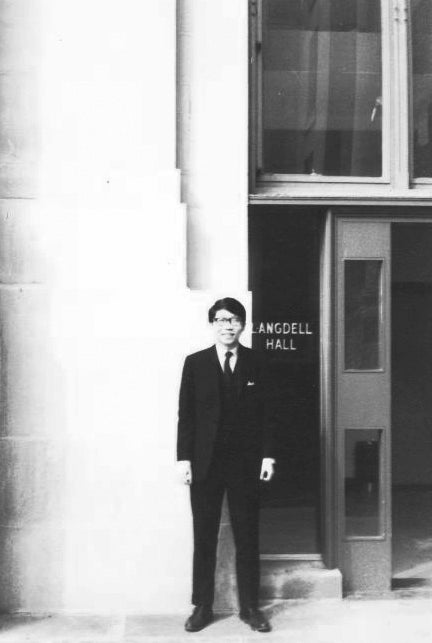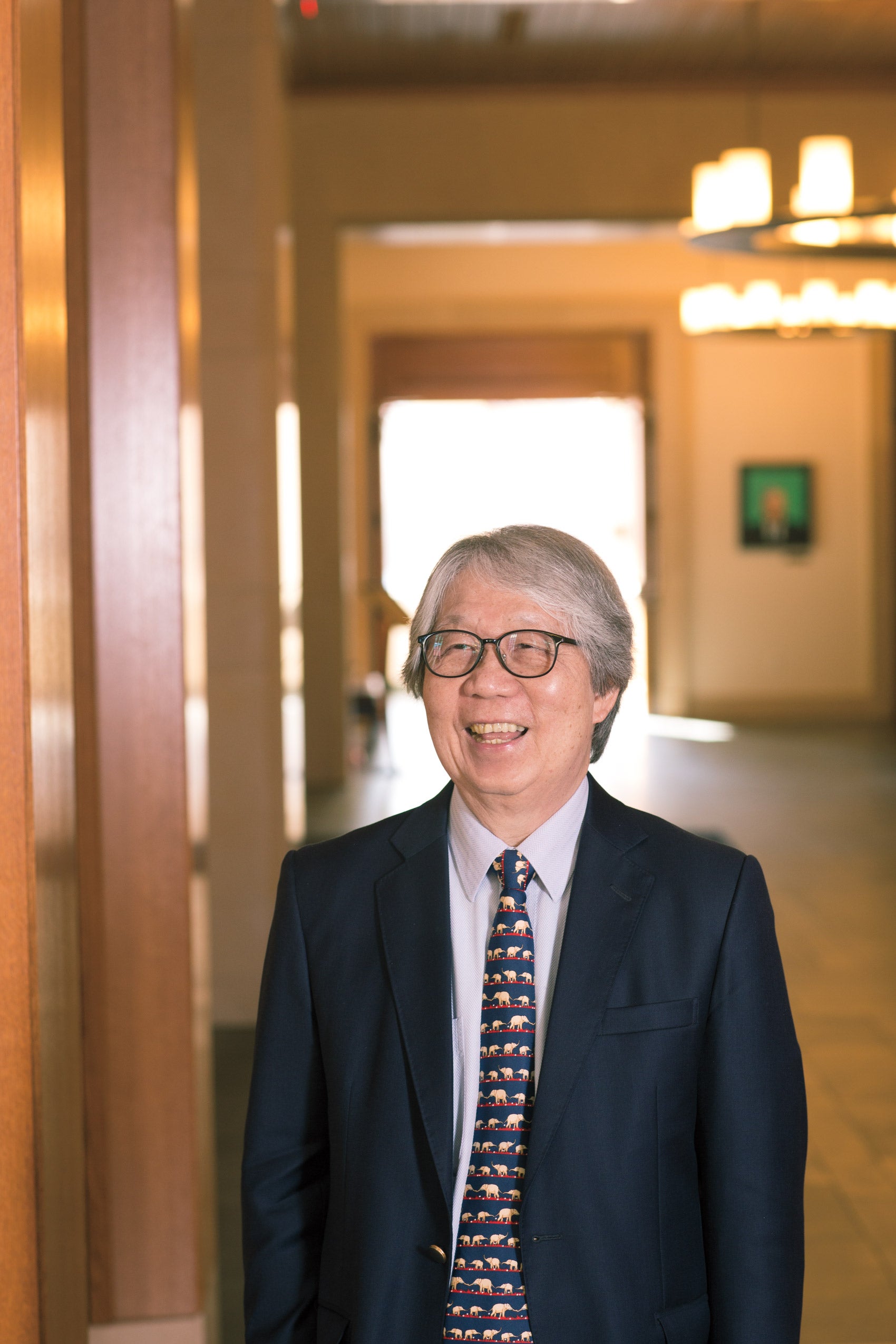In April 1992, in Rio de Janeiro, Brazil, representatives from more than 100 nations gathered under the aegis of the United Nations to discuss highly contentious issues related to the environment and development. During the final session of the preparatory committee working on the draft of what came to be known as the Rio Declaration of Principles, talks stalled when the group of developing countries lost confidence in the impartiality of the chairman.
All of the parties agreed that Tommy Koh LL.M. ’64 should take over—and two days later, the declaration was hammered out.
Koh had agreed to lead the negotiations under two conditions: First, discussion would continue with much smaller groups of representatives from both the developed world and the developing countries. Second, Koh insisted the meeting take place behind closed doors, with no observers.
After 48 hours of intensive, around-the-clock meetings—and some good luck and good timing, he insists—Koh brokered an agreement.
“To be a good negotiator, you have to master your brief,” says Koh, whose career includes serving 13 years as Singapore’s representative to the U.N. and six as its ambassador to the U.S. “You should put yourself in the shoes of your negotiating partners and understand their national interests.”
And, continues Koh, as well-known for his ever-present smile as for his prodigious intellect, “To be a good negotiator, you should try to think with both your head and your heart.”

On April 10, Koh received the Great Negotiator Award, given jointly this year by the Program on Negotiation, an interuniversity consortium based at HLS, and the Harvard Kennedy School. The award recognized his work as chief negotiator for the U.S.-Singapore Free Trade Agreement, his chairmanship of the negotiations that produced a charter for the Association of Southeast Asian Nations, and key actions that resolved territorial and humanitarian disputes in the Baltics and Asia. He was also recognized for successfully leading two unprecedented global megaconferences: the U.N.’s Rio Earth Summit and the Third U.N. Conference on the Law of the Sea, which produced the 1982 Convention on the Law of the Sea, regarded by many as one of the U.N.’s most important contributions to the rule of law in the world.
“My wife [physician Siew Aing] has asked me why this award is special,” says Koh. “My answer is that it is from my alma mater. This is also the 50th anniversary of my graduation from Harvard Law School!” The most important thing he learned at HLS, he says, “was to be passionate about the law and to believe that the law should always be used to render justice and not injustice.”
In November, Koh, chair of the Centre for International Law at the National University of Singapore, published “The Tommy Koh Reader” (World Scientific). It combines memories of his parents (his mother was an actress and dancer from Shanghai before marrying his father, a businessman from Singapore) with recollections of HLS and descriptions of his role at the center of some of recent history’s most challenging negotiations.
“I am a born optimist,” says Koh, who, in addition to HLS, holds degrees from the National University of Singapore and the University of Cambridge. “I believe that most people are rational most of the time. I therefore believe that, given good will, most problems can be solved. I also believe that kindness begets kindness.”
But success at the bargaining table requires a clear-eyed realism. He describes himself as a “pragmatic idealist,” a term he borrowed from the third secretary-general of the U.N., U Thant of Myanmar. “I am realistic about the obstacles and challenges we face. At the same time, I am determined to change the world and not to accept reality in a fatalistic manner.”
Koh, 76, now ambassador-at-large at the Ministry of Foreign Affairs for Singapore, has been outspoken about his concern for the poorest residents in his nation, and worries that the growing wealth disparity threatens the cohesion of Singapore. “My goals in the remaining years of my life are to persuade Asia to embrace sustainable development; to strengthen the rule of law in the world, especially in Asia; and to fight for a more just and more equal world,” he says.
And he has a more personal goal as well, he adds: “To remember my grandmother’s teaching, to be modest and humble in the face of temptations (such as receiving an award from Harvard).”
